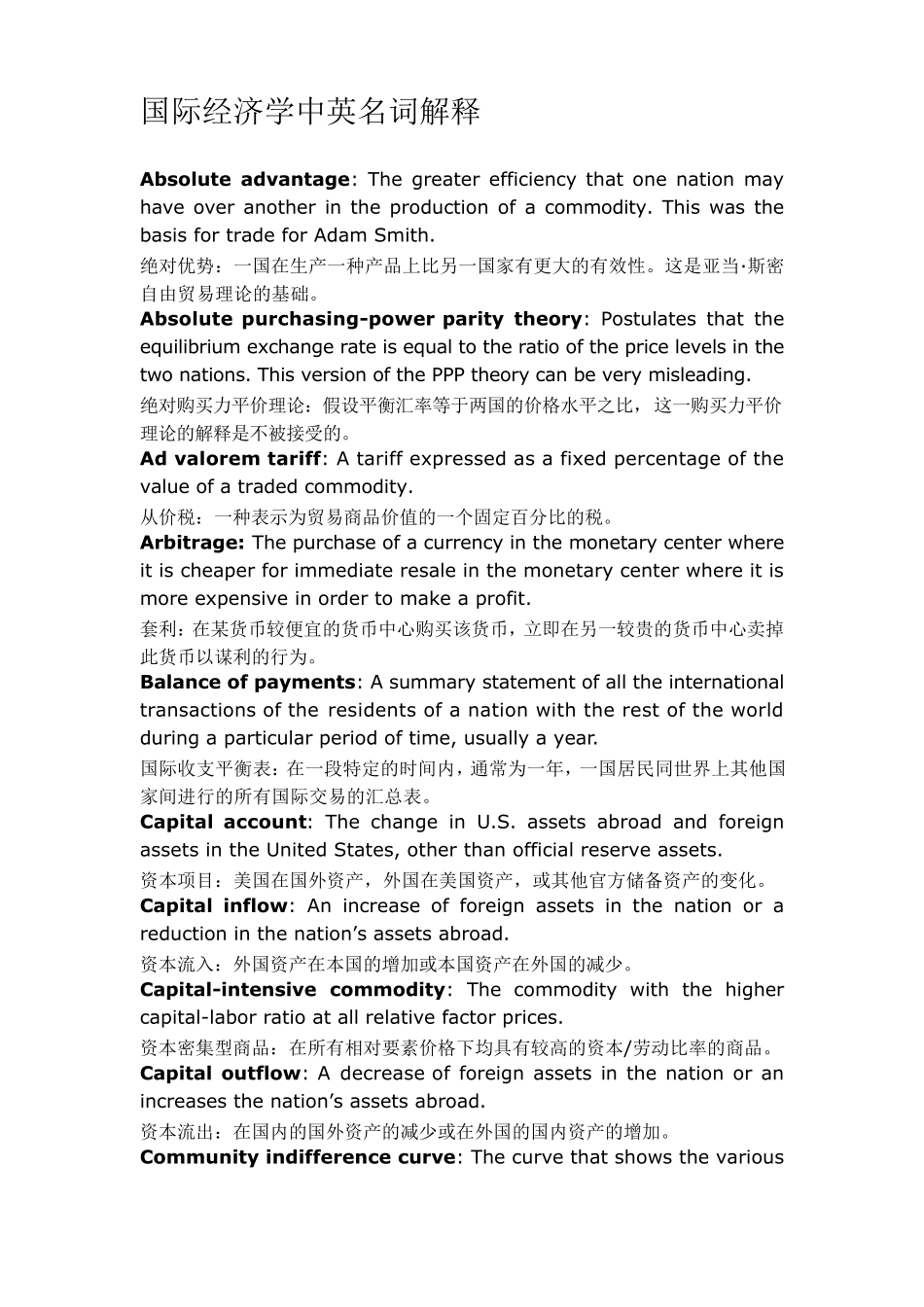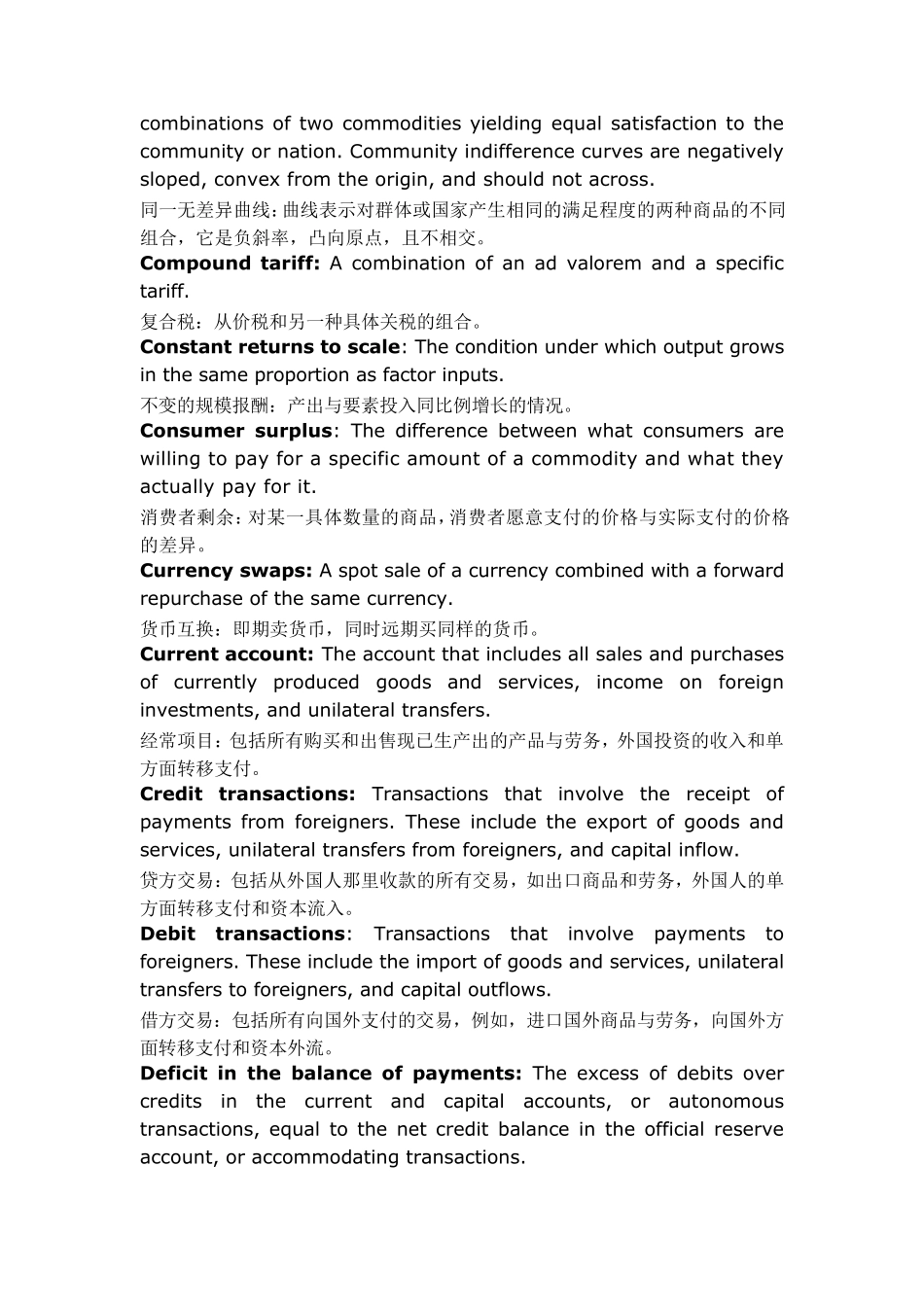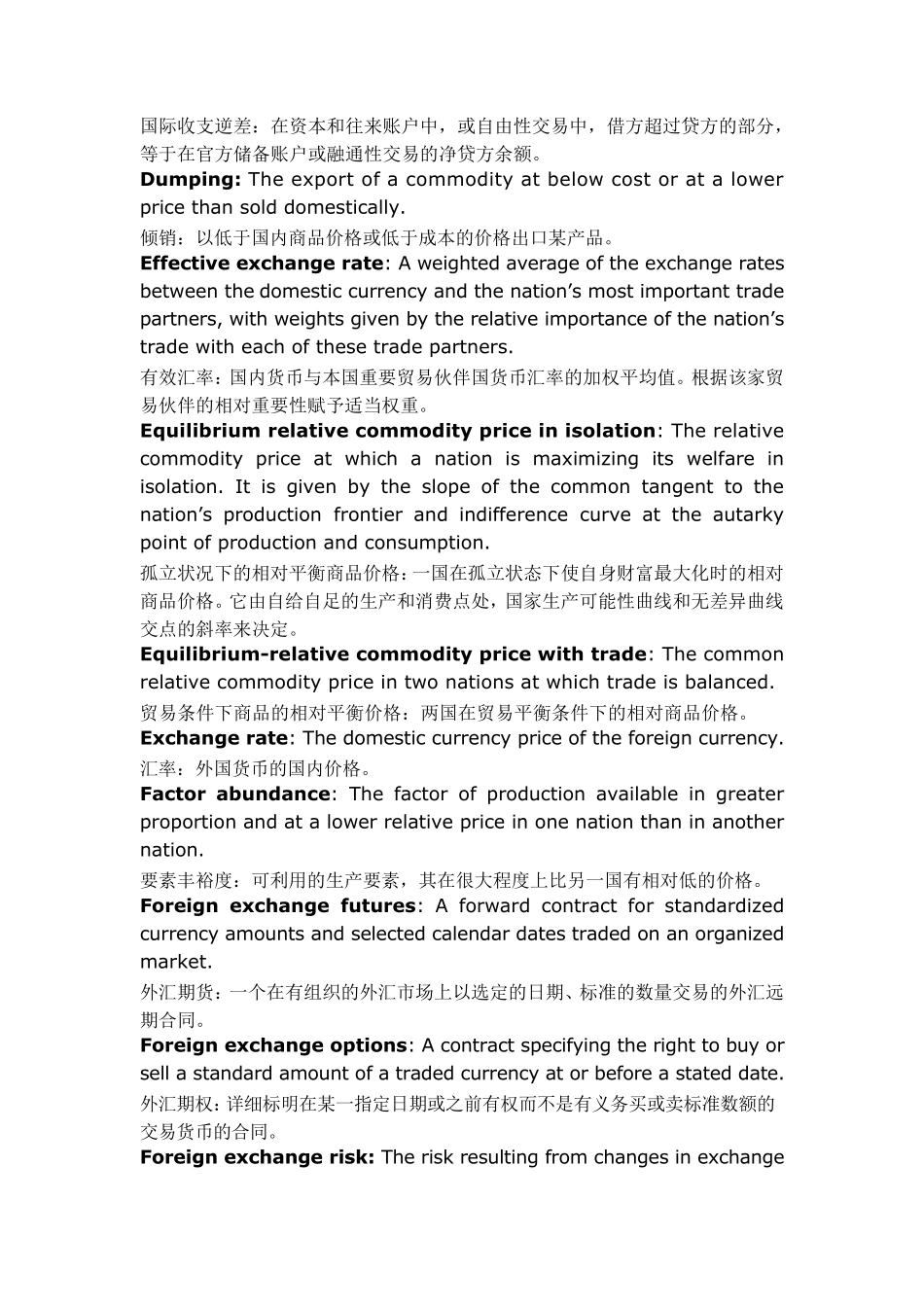国际经济学中英名词解释 Absolute advantage: The greater efficiency that one nation may have over another in the production of a commodity. This was the basis for trade for Adam Smith. 绝对优势:一国在生产一种产品上比另一国家有更大的有效性。这是亚当·斯密自由贸易理论的基础。 Absolute purchasing-power parity theory: Postulates that the equilibrium exchange rate is equal to the ratio of the price levels in the two nations. This version of the PPP theory can be very misleading. 绝对购买力平价理论:假设平衡汇率等于两国的价格水平之比,这一购买力平价理论的解释是不被接受的。 Ad valorem tariff: A tariff expressed as a fixed percentage of the value of a traded commodity. 从价税:一种表示为贸易商品价值的一个固定百分比的税。 Arbitrage: The purchase of a currency in the monetary center where it is cheaper for immediate resale in the monetary center where it is more expensive in order to make a profit. 套利:在某货币较便宜的货币中心购买该货币,立即在另一较贵的货币中心卖掉此货币以谋利的行为。 Balance of payments: A summary statement of all the international transactions of the residents of a nation with the rest of the world during a particular period of time, usually a year. 国际收支平衡表:在一段特定的时间内,通常为一年,一国居民同世界上其他国家间进行的所有国际交易的汇总表。 Capital account: The change in U.S. assets abroad and foreign assets in the United States, other than official reserve assets. 资本项目:美国在国外资产,外国在美国资产,或其他官方储备资产的变化。 Capital inflow: An increase of foreign assets in the nation or a reduction in the nation’s assets abroad. 资本流入:外国资产在本国的增加或本国资产在外国的减少。 Capital-intensive commodity: The commodity with the higher capital-labor ratio at all relative factor prices. 资本密集型商品:在所有相对要素价格下均具有较高...


